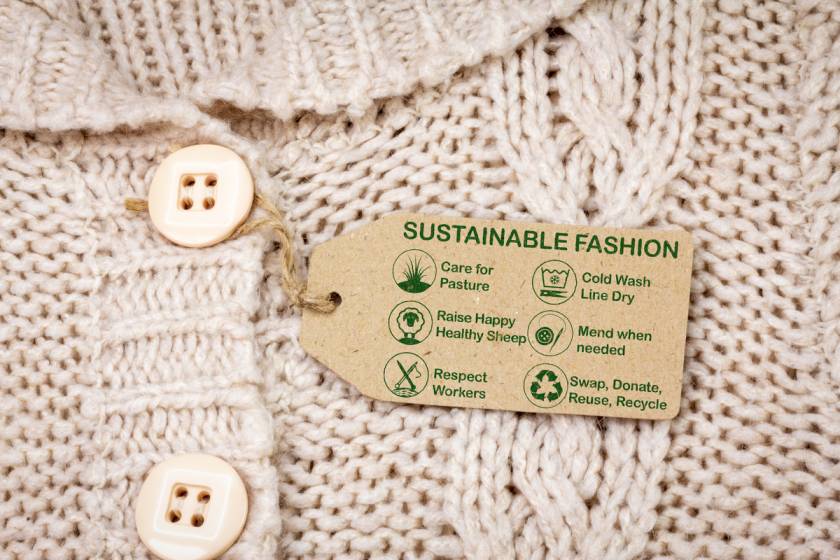8 Environmental Benefits of Ethical Winter Wear



Every year, we purchase a vast amount of clothes. For the average American, clothing costs more than their annual salary. Furthermore, with the introduction of online shopping, individuals are purchasing stylish products in unprecedented numbers. As customers, we must be mindful of the ecological footprint that our fashion consumption leaves behind.
What Is Ethical Fashion?
Ethical fashion is a broad phrase that covers ethical fashion design, manufacturing, retailing, and purchasing. Ethical fashion is also connected to issues relating to employment conditions, trafficking, reasonable wages, responsible consumption, and animal welfare.
8 Environmental Benefits of Ethical Winter Wear

- Ethical winter wear saves animals
Consider this: the beautiful brown leather bag you tote daily is likely made from cow skin. Tanneries are environmentally unfriendly. Leather tanning not only consumes a large amount of water, solvents, and energy but also significantly influences cattle lifespan. Don't think of common animal goods like leather as by-products of other businesses. Without ethical fashion, traders and vendors will continue to endure the momentary gratification of a woolen coat or suede wallet as long as they are in great demand. Ethical fashion eliminates or slows down this process of cruelty as the ethical winter wear is passed down many times before it is discarded.
- Ethical winter wear is simple to follow up with
When cleaning a cardigan from a mass-market retailer, extra caution is required. It will be challenging to wear the item again if it is cleaned incorrectly. Then you'll go out and purchase another jacket.
This is owing to the fabric's low quality - the price/quality ratio isn't worth it. Regardless of how well you care for it, you won't be able to wear such an item more than seven times. On the other hand, you may be sure that if you get your favorite ethical winter jacket from an eco-brand, you will end up wearing it for a long time.
- Ethical winter wear is inexpensive
In light of the preceding statement, eco-friendly apparel is inexpensive in the bigger picture. It is considerably cheaper to purchase a high-quality garment from an environmental brand if you use it for three winters instead of one, which seldom happens with mass-market products.
Furthermore, at second-hand stores, you may get genuine vintage ethical winter wear such as an ethical winter coat item for a reasonable price that cannot be matched to all items labeled vintage.
- No Fatalities in Factories
The fast-fashion business has become a source of bad news. Employers turn a blind eye to workers' demands for assistance. People are paid inequitably and are also detained in unsafe and unsanitary conditions.
As we already know, much like any other business, the fashion industry damages the environment in huge numbers. However, ethical winter wear textiles and accessories are often refurbished and reused for a lengthy period. This results in reduced environmental damage due to our fashion choices.
- Ethical winter wear produces less waste and is environmentally friendly
Switching to ethical fashion substantially reduces our environmental impact since we own just what we use and use everything we own.
With every coat you purchase in the fast fashion consumer market, you directly or indirectly contribute to some serious human rights violations. Humans are also an important element of the environment. Ethical practices in manufacturing are as important as sustainable clothing. By purchasing or selling ethical winter wear practices, we reduce the chance of unknowingly committing this crime by purchasing only ethical winter coats.
- Ethical winter wear supports carbon emission reduction
The fashion business, like other industries, damages the environment. Because clothing factories produce so many items in large quantities, they emit gases and pollution. Furthermore, all the garments made but never sold are thrown away. Garments such as ethical winter jackets and coats can be passed down as ethical winter wear.
- Return to the environment as soon as possible
Sustainable fashion has the advantage of not quickly fading and being with us for an extended period. Even when we can no longer wear something, we may reuse it for various purposes until the time comes to dispose of it.
They do not linger on the dumps for lengthy periods and are rapidly decomposed by the ecosystem. Ethical winter wear is a preferable choice even when we dispose of it because of its biodegradability factor.
- You are assisting the environment
The most important benefit is that it allows us and our families to inhale freely and consume clean water. Non-sustainable fashion contributes to greenhouse gas emissions, pollutes the soil, and fills heaps with garbage.
A sweater purchased from a mass-market retailer will likely not degrade in 200 years. Compounds used to color clothing and preserve wool from pets contaminate water, soil sub-layers, and the air simultaneously.
Conclusion
Whatever you believe the world's most pressing concerns are, nothing is more important than the earth we live on. Fast fashion promotes overconsumption and is bad news for the planet. However, ethical winter wear and sustainable clothing options can help solve several of these challenges in unexpected ways. As consumers, you need to be aware of the positives and negatives of your choices in the buying chain.



















